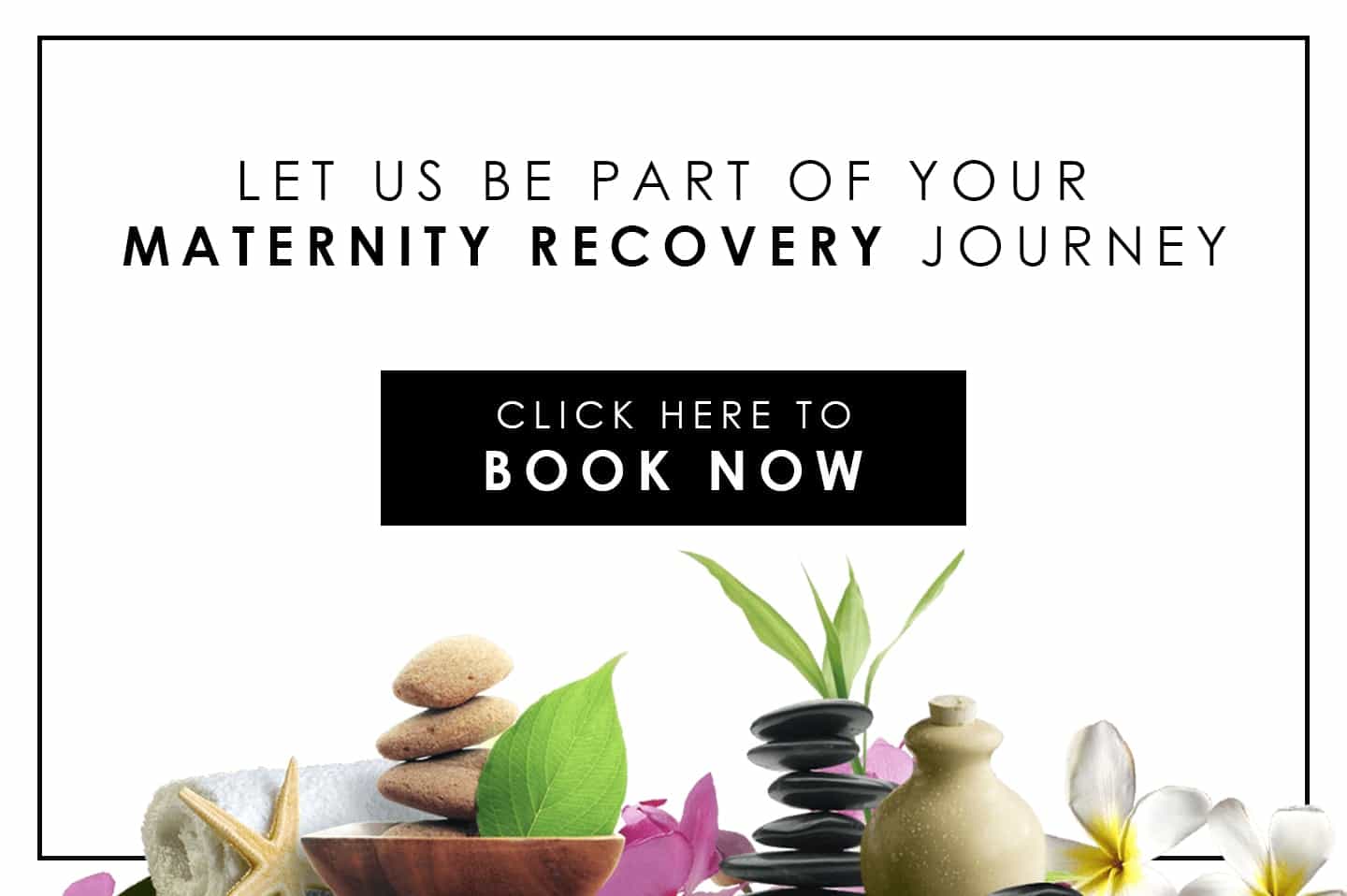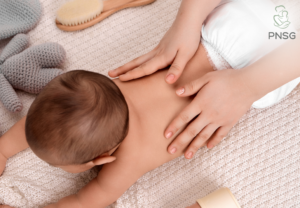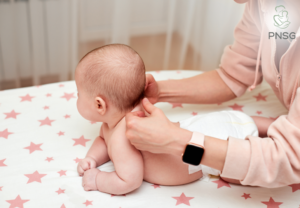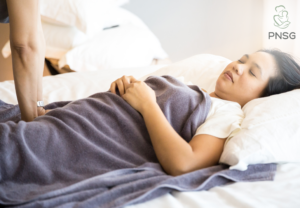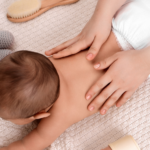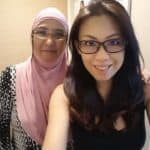7 Gambas Crescent, #09-09, Ark@Gambas, Singapore 757087 ♦ Reservation : +65 6417 9690
How to Prevent Postpartum Hair Loss
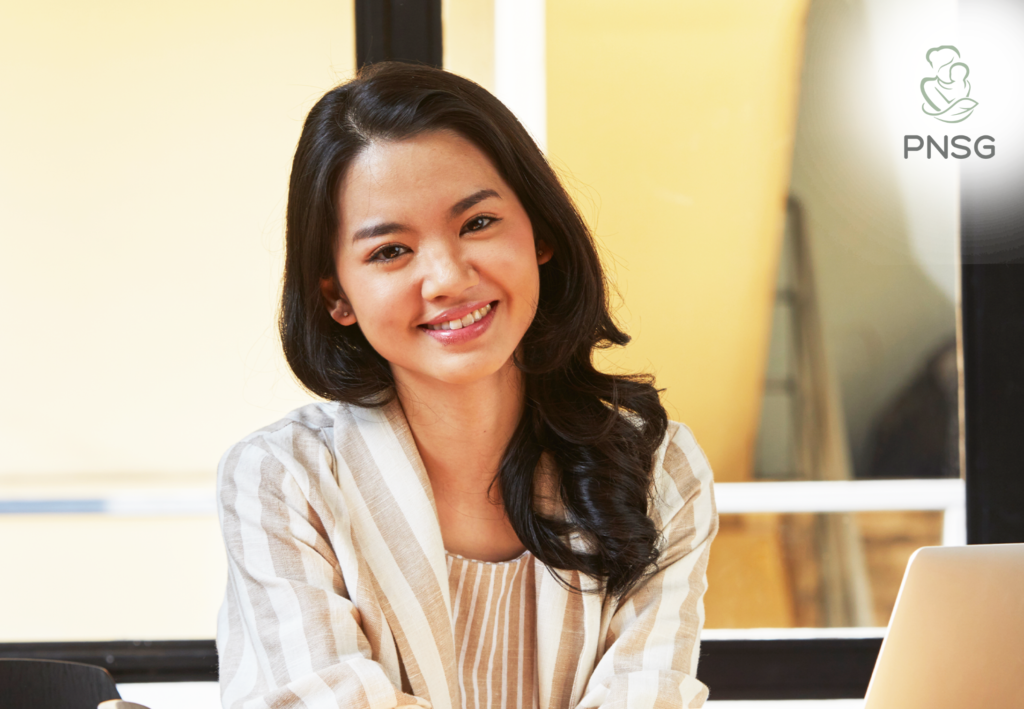
In the months following childbirth, you might experience postpartum hair loss and knowing that there is a possibility that you might lose a lot of hair can be pretty alarming and disconcerting – but fret not! Postpartum hair loss is a fairly common occurrence for women and the good news is that the excessive shedding of hair is only temporary. Many women would have their hair return to its normal fullness several months after childbirth, though some may experience the condition up to a year later. It is also important to note that not all mothers will experience postpartum hair loss.
There are several ways that might help alleviate your worries about postpartum hair loss. Read on to learn more about why mothers face postpartum hair loss and the remedies that may help treat the problem.
What Causes Postpartum Hair Loss and What to Do about It?
Hair on your body grows in cycles and the hair growth cycle includes the growing phase, resting phase, and shedding phase. As your body goes through changes during pregnancy, your oestrogen levels will rise, thus altering your hair growth cycle. The surge of oestrogen will cause most of your hair to be in the growing phase resulting in fuller, more lush-looking hair, as well as less hair shed during pregnancy.
After giving birth, your oestrogen levels will drop as your body will regulate the hormonal imbalance. When these hormones begin to balance out, your hair growth cycle will return to normal. The additional hair strands that are retained during your pregnancy will enter a resting phase where they will no longer grow and will fall out. People can lose up to 100 hairs each day on average; however, due to the changes in hormone levels in your body, a substantial amount of hair will enter the resting period, and more hair strands will fall out than usual for postpartum mothers.
Your hair should return to normal after about half a year to a year, but if you notice that the shedding is unusually severe or prolonged, it is best to consult with your healthcare provider. There may be other factors that are contributing to hair loss.
Though it can be particularly traumatic for some, you cannot completely prevent postpartum hair loss because it is a normal and expected occurrence for the majority of mothers during their child-bearing years. If you are bothered or concerned about excessive hair loss, here are some steps you can take to help minimise hair loss and restore fullness to your hair.
Keep Your Hair and Body Healthy

All expectant mothers should have a balanced diet in general for their physical health and overall well-being. Even after childbirth, mothers should keep a nutritious diet because it can aid in their recuperation. In addition to the general health benefits, a well-balanced diet of vitamins, fruits and vegetables, protein, and whole grains may also prevent postpartum hair loss from progressing. If possible, consult a dietician that can help determine a balanced postpartum diet plan for you.
Change Your Shampoos and Conditioners
As more hair strands fall, your hair may look flat or limp. If you are concerned about your appearance and the look of your hairstyle, you can try using some styling products to improve your hairstyle – but pay attention to the ingredients, and choose natural products that are free from harsh chemicals whenever possible, as chemicals might cause further damage to your hair.
You could also switch out your regular shampoos for volumising ones that can help your hair look fuller. Avoid using heavy conditioners and use one that is made for fine hair. Remember to only use conditioner on the ends of your hair and not on your scalp or all of your hair, as this can cause your hair to become even more weighed down.
A trip to the salon, on the other hand, might do the trick. Shorter hairstyles might help make your hair look fuller. Visit your hairstylist to get advice on what is the best look for you and how you can style your hair to help minimise the appearance of hair loss.
Be Gentle with Your Hair
Try to avoid using heat or chemicals that can cause damage to your hair. If at all possible, avoid using blow dryers or flat irons and instead use a microfibre towel to absorb the water in your hair before allowing it to dry naturally. This includes putting off any permanent hair straightening, perming, or dyeing sessions.
Remember to be gentle with your hair and avoid combing or brushing your hair too vigorously as well. Use a wide-toothed comb instead of a hair brush as it can help detangle and breakthrough knots easily and effectively whilst preventing hair breakage.
Lastly, try to avoid pulling your hair back into tight ponytails, braids, or buns which can cause added tension on your scalp. Use hair barrettes to help tame flyaways and a scrunchie instead of a rubber band to keep your hair up. As previously mentioned, cutting your hair short may not only make your hair look fuller, but can also make your hair easier to manage. You would not have to worry about having to tie your hair up to keep it off your face.
Take It Easy
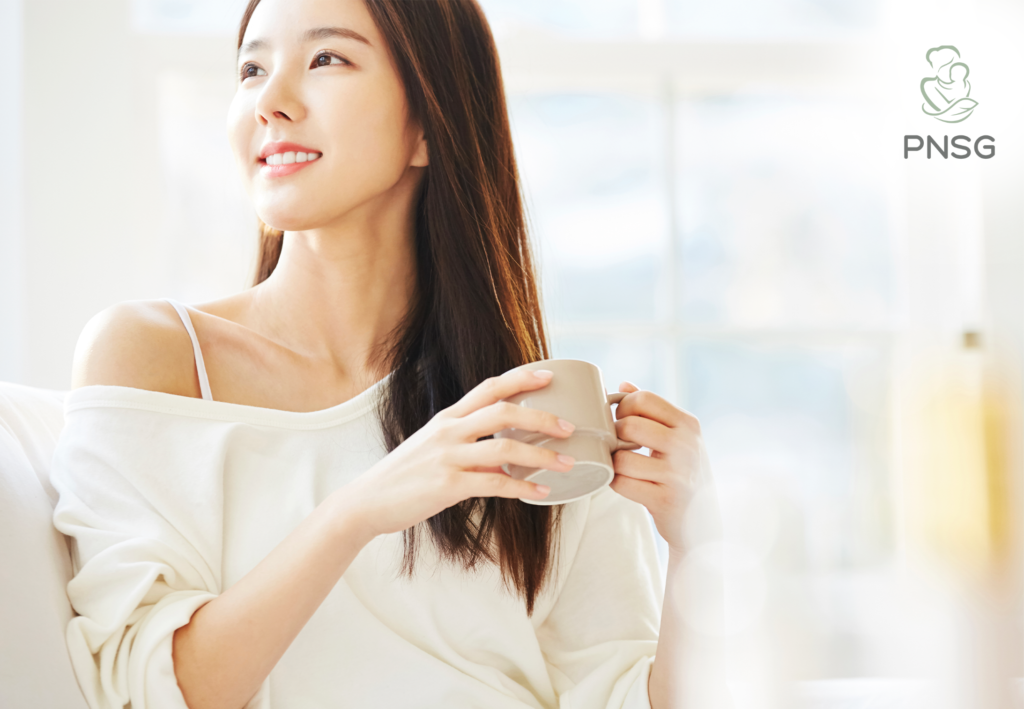
You might feel stressed out or tired from taking care of your newborn but you should remember to take it easy. Stress reduction is not only important for overall health, but it also aids in the regulation of hormonal imbalances.
Going out and meeting your friends, practising mindfulness and meditation, and doing some light exercises are all examples of ways to take your mind off your worries. If you are feeling exhausted and need to take a break, seek help from your friends and family to care for and watch over your baby for you while you take some time for yourself.
Besides that, one of the best ways to unwind from months-long discomfort during your pregnancy period is to treat yourself to a Javanese massage after giving birth. At PNSG, we provide postnatal care Singapore mothers need to help them unwind and destress without having to step out of their houses. If you have been searching for “spa for pregnancy Singapore” online, our certified massage therapists are professionally trained to provide prenatal and postnatal massage where you can feel pampered in the comfort of your own home.
Reach out to us to learn more about our home-based postnatal care Singapore postnatal massage today!

